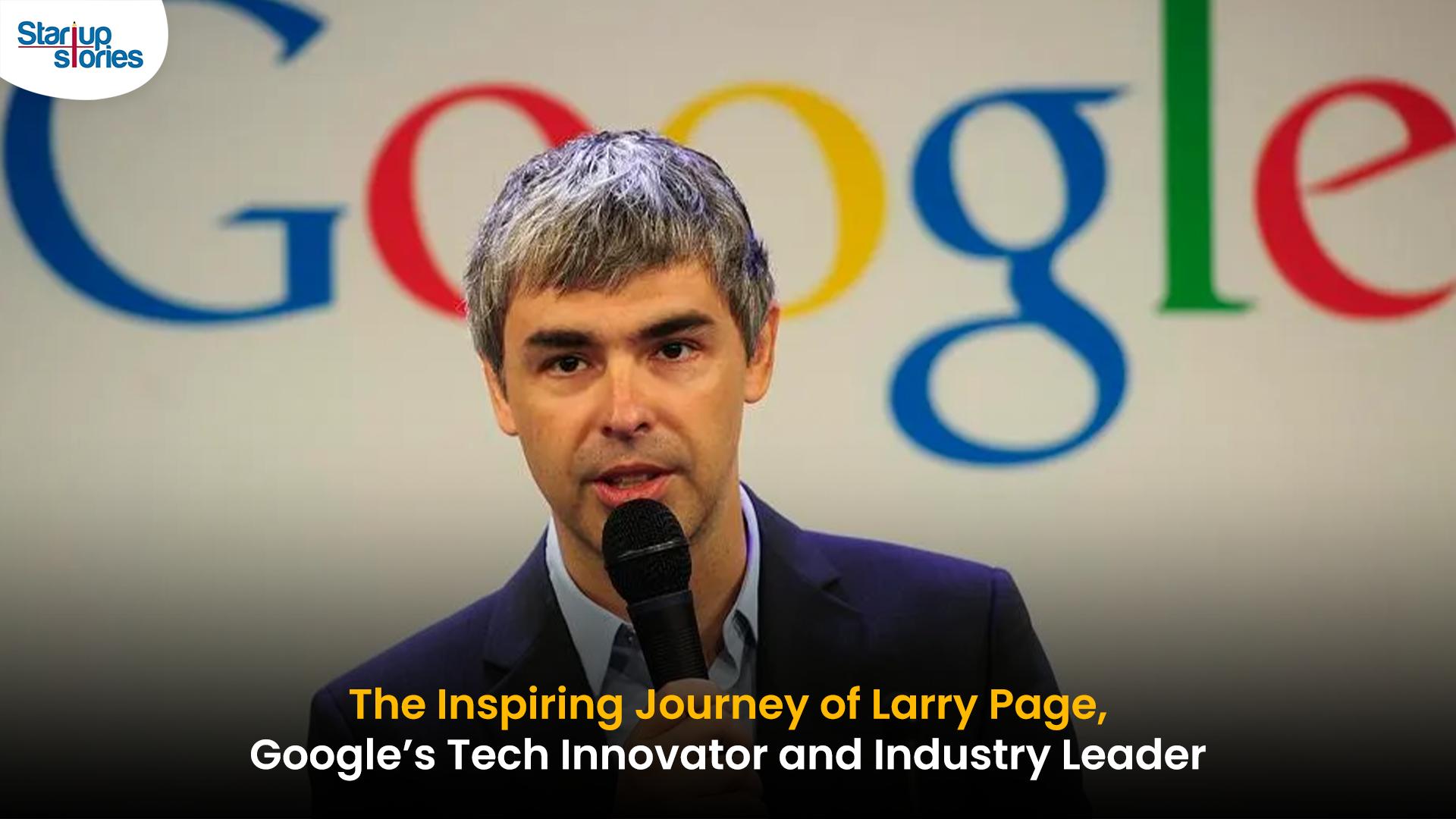Stories
Story of Rovio Entertainment, Makers of Angry Birds Franchise

If you are a smartphone user, chances are you have seen or played the hit game Angry Birds at least once. The game became a phenomenon due to its fun gameplay featuring ‘angry’ birds with powers and pigs which try to steal the eggs of the birds. However, the creators of the game, Rovio Entertainment, almost went bankrupt before coming up with the idea of Angry Birds. While Rovio Entertainment may look like an overnight success story, in reality, it really was not.
Beginnings
Rovio Entertainment was founded by three Finnish students, Niklas Hed, Jarno Väkeväinen and Kim Dikert, belonging to the Helsinki University of Technology, after they won a mobile game development competition sponsored by Nokia and Hewlett-Packard in 2003. Rovio was initially named Relude. Later, the name was changed to Rovio in 2005 before finally becoming Rovio Entertainment in 2011.
Rovio Entertainment was focussed on making games which targeted niche audiences and concepts like science fiction and horror. They released 51 games to not a lot of success and realised they would go bankrupt if they continued on the same path.
Development of Angry Birds
When the first iPhone was announced in 2007, the entire smartphone industry was disrupted, leading to the development of new ecosystems. Mikael Hed, the Chief Executive Officer (CEO) of Rovio Entertainment, saw an opportunity to create a game which echoed with the millennial mindset and attention spans. He wanted to come up with a game which was easy to load, simple to play without any tutorial and could be played at any time.
While the team of Rovio Entertainment was experimenting with different concepts, one designer pitched a concept art showing a group of birds which were cross for no reason and the design stuck. The game was developed around these ‘angry birds’ by creating a storyline and antagonists. For the antagonists, the developers settled on pigs because of the swine flu epidemic which was in the news at the time. Angry Birds was the fifty second game to be developed by Rovio Entertainment and was developed at a cost exceeding 100,000 euros.
Capturing the market
The developers realised they could not compete on the Apple App Store in the United States of America and the United Kingdom, which hold the largest market share with other games, as the response to Angry Birds was lukewarm. Therefore, the developers released the game in smaller markets like Finland, Sweden and Denmark before capturing Greece and the Czech Republic. The larger markets began to take note and the App Store in the United Kingdom finally put it on its featured games list, thereby catapulting the game into limelight and making it the number 1 game on the U.K. and the U.S.A. App Stores. Angry Birds reached its one billionth download in 2012 and two billionth download in 2014.
Rovio Entertainment showed what it means not to give up and stick to an idea if it is endearing. The success of Angry Birds is a testimony to the perseverance of the studio behind it. Angry Birds successfully spawned a franchise, with multiple games on offer, merchandise and Hollywood movies to its name.
Read about the story of Electronic Arts here : The Story of Video Gaming Company Electronic Arts (EA)
Videos
T.N. Seshan: The Fearless Reformer Who Redefined Indian Democracy

T.N. Seshan’s name stands tall in India’s history as the man who transformed the nation’s electoral system with extraordinary courage and integrity. Born in 1932 in Kerala, Seshan grew up with values of discipline, education, and service to the nation — virtues that shaped his illustrious journey. From his early brilliance at Madras Christian College to his advanced studies in public administration at Harvard University, Seshan’s path reflected rare determination and intellect. Joining the Indian Administrative Service in 1955, he built a reputation as a no‑nonsense officer committed to efficiency and honesty, serving in key roles such as Secretary of Defense and overseeing vital national programs.
As the Chief Election Commissioner of India in 1990, T.N. Seshan sparked a new era of electoral integrity. In a system once marred by corruption, violence, and malpractice, Seshan brought order, fear, and respect through his groundbreaking reforms. He introduced voter ID cards, imposed strict spending limits on campaigns, and insisted on transparency at every level of the election process. Despite criticism from political circles that labeled him dictatorial, his relentless pursuit of fairness empowered every citizen to vote fearlessly. Under his leadership, the Election Commission became a symbol of strength and integrity in Indian democracy.
Seshan’s passing in November 2019 marked the end of an era, but his message continues to resonate across generations. Leaders from every corner of the country mourned the loss of the man who restored faith in free and fair elections. His enduring legacy reminds us that true leadership lies not in wielding power, but in serving people with honesty, courage, and conviction. T.N. Seshan’s life remains a timeless inspiration a reminder that democracy thrives only when its citizens are vigilant, responsible, and fearless.
Entrepreneur Stories
Indian Man Quits JPMorgan, Takes 70% Pay Cut to Launch $6 Million Startup

Leaving behind a high-paying job at JPMorgan, an Indian entrepreneur embraced a 70% salary cut to pursue true purpose and passion in the startup world. Disenchanted with what he described as a “robotic” corporate routine, he sought meaningful work that made a real impact. This pivotal decision marked the beginning of his new journey, one focused on value creation rather than titles and corporate perks.
Powered by resilience and fresh perspective, the entrepreneur launched his own startup, prioritizing innovation and hands-on solutions. The road was challenging, but his vision resonated with the market: the startup quickly gained traction and raised $6 million—an impressive acknowledgement of its potential in a competitive landscape. Every hard lesson from early setbacks and bootstrapping paid off in real customer growth and investor confidence.
Today, his journey stands as an inspiring example for professionals seeking authentic success outside the corporate grind. By trading comfort for creative freedom, he grew a venture that solves important problems, generates jobs, and builds wealth beyond just salary. For ambitious founders, his story highlights the power of risk-taking, adaptability, and relentless focus on impact in India’s thriving startup ecosystem.
Videos
Larry Page: The Visionary Co-Founder Behind Google’s Global Success

Larry Page is a visionary technology entrepreneur and co-founder of Google, one of the world’s most influential companies. Born in 1973 in Michigan, Page grew up surrounded by computer technology, which inspired his passion for innovation from an early age. He studied computer engineering at the University of Michigan and later pursued his PhD at Stanford University, where he developed the revolutionary PageRank algorithm with Sergey Brin. This technology fundamentally changed the way search engines rank websites, making Google the most accurate and popular search engine globally.
The journey of Larry Page and Google began in 1998 when they officially launched the search engine from a small garage. Leveraging their unique algorithm, Google quickly surpassed competitors due to its ability to deliver highly relevant search results, transforming internet search forever. Under Larry Page’s leadership as CEO, Google expanded beyond search to launch groundbreaking products including YouTube, Gmail, and Google Maps, turning it into a global tech powerhouse that shapes how we access and interact with information online.
Larry Page later became the CEO of Google’s parent company, Alphabet Inc., driving innovation and investment in next-generation technologies such as artificial intelligence, autonomous vehicles, and healthcare solutions. His visionary leadership and commitment to technological advancement have cemented his legacy as one of the most influential figures in the tech industry. Today, Larry Page remains a key influencer in shaping the future of technology and digital innovation worldwide.













谷歌站群
November 7, 2025 at 5:55 am
专业构建与管理谷歌站群网络,助力品牌实现全域流量的强势增长。谷歌站群
J88
November 7, 2025 at 8:46 am
Đến với J88, bạn sẽ được trải nghiệm dịch vụ cá cược chuyên nghiệp cùng hàng ngàn sự kiện khuyến mãi độc quyền.
GO88
November 8, 2025 at 10:54 pm
Tham gia cộng đồng game thủ tại Go88 để trải nghiệm các trò chơi bài, poker phổ biến nhất hiện nay.
MM88
November 14, 2025 at 8:39 am
Khám phá thế giới giải trí trực tuyến đỉnh cao tại MM88, nơi mang đến những trải nghiệm cá cược thể thao và casino sống động.
Kuwin
November 18, 2025 at 12:40 am
kuwin sở hữu kho game đa dạng từ slot đến trò chơi bài đổi thưởng, mang đến cho bạn những giây phút giải trí tuyệt vời.
iwin
November 18, 2025 at 3:01 am
iwin – nền tảng game bài đổi thưởng uy tín, nơi bạn có thể thử vận may và tận hưởng nhiều tựa game hấp
MM88
December 1, 2025 at 2:46 am
Với giao diện mượt mà và ưu đãi hấp dẫn, MM88 là lựa chọn lý tưởng cho các tín đồ giải trí trực tuyến.
J Oliver
December 10, 2025 at 8:53 pm
Reading about Rovio’s journey with Angry Birds really struck a chord with me. It’s incredible to realize that a company almost on the brink of bankruptcy could pivot so dramatically with a simple yet clever idea, proving that persistence and understanding your audience truly pay off. I was especially fascinated by how they strategically launched in smaller markets before breaking into the U.K. and U.S., showing patience and smart planning matter just as much as creativity. On a related note, I recently came across a detailed overview of platforms like DBBet Bangladesh on https://dbbet-bd.org/ where you can read about licensed online casinos, sports betting, and mobile-friendly gaming experiences. It reminded me how the digital space rewards both innovative content and reliable platforms, whether it’s games or online betting, with fast deposits, fair odds, and a smooth mobile interface contributing to overall success.
aktueller Tipico Casino Bonus Code
December 21, 2025 at 4:36 pm
Alle in Ihrem persönlichen Konto angezeigten Zahlungssysteme sind zuverlässig und sicher
und werden auch in Dutzenden Ländern auf der ganzen Welt verwendet.
Deutsche Spieler, die lieber im Live-Dealer-Bereich wetten,
können bis zu 25 % Cashback erhalten. Dank Cashback können Sie
im auch einen Powbet Casino Bonus ohne einzahlen erhalten. Das
Online-Casino Powbez macht den Erhalt eines Registrierungsbonus so einfach wie möglich, für den Sie lediglich einen Aktionscode eingeben müssen. Um sie zu erhalten, müssen Sie
kein Geld auf Ihr Konto einzahlen. Das Vorhandensein von Boni ohne Einzahlung ermöglicht es Ihnen,
noch mehr Prämien von der Verwaltung zu erhalten.
Es stellt sicher, dass die Rechte der Spieler geschützt
sind und dass ein faire Spielumgebung festgestaltet wird.
All das Beweist, dass Powbet seriös ist und stetig
bestrebt ist, ein sicheres und verantwortungsvolles Umfeld zu kreieren. Die Lizenz gewährleistet so ein sicheres Spielerlebnis, das von höchster Bedeutung ist.
References:
https://online-spielhallen.de/lucky-dreams-casino-promo-codes-ihr-weg-zu-traumhaften-gewinnen/
NetBet Bonus Code aktivieren
December 21, 2025 at 8:45 pm
Und falls Sie ein wenig Kultur abseits des Entertainments suchen, können Sie die
Bellagio Gallery of Fine Art besichtigen. Für ein einfaches Zimmer zahlen Sie pro Person 250 € für eine Nacht, die Suiten beginnen ab 1.000 € aufwärts.
Von normalen einarmigen Banditen über progressive Automaten bis zu hohen Jackpots und
Limits zwischen 1 $ und 1.000 $ finden Sie hier
alles. Hier findet das Big Game, bei dem die
Spieler mit den höchsten Einsätzen und um Millionenbeträge spielen, statt.
Besonders beeindruckend sind die riesigen LED-Displays,
die über die Straße gespannt sind und immer wieder spektakuläre Shows bieten. Das Neon Museum bietet die Möglichkeit,
die Geschichte von Las Vegas durch die vielen alten Neon-Leuchtreklamen zu entdecken. Das Riesenrad bietet eine beeindruckende Aussicht auf die Stadt und ist besonders bei Nacht ein Erlebnis.
Zen-Gärten werden oft als Meditationsorte genutzt und sind ein beliebtes Fotomotiv für Touristen.
Zen-Gärten sind minimalistische Gärten, die in Japan entstanden sind und oft in Verbindung mit Zen-Buddhismus stehen. Die Straße
ist bekannt für ihre beleuchteten Überdachungen, die spektakuläre Lichtshows bieten.
References:
https://online-spielhallen.de/500-casino-bewertung-ein-tiefer-einblick-fur-spieler/